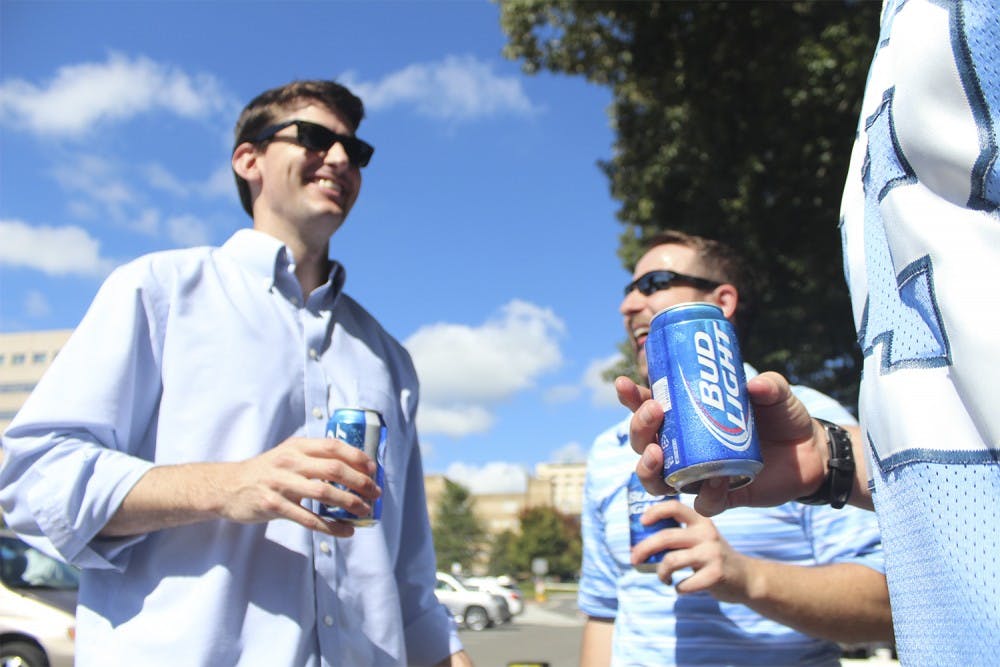“It’s not that students are drinking today and they didn’t drink yesterday, it’s how much and how they’re drinking,” Sauls said.
Several universities, such as the University of Maryland and West Virginia University, have recently begun selling alcohol to the general public at football and basketball games. Supporters of Maryland’s decision say serving alcohol could combat binge drinking on game days.
In February, Provost Jim Dean and Vice Chancellor for Student Affairs Winston Crisp began a binge drinking task force at UNC to address what Sauls considers one of the biggest issues he deals with.
“Often students are drinking for the single purpose of blacking out or getting hammered and that is highly dangerous,” Sauls said. “You don’t know which drink is going to put you over the edge.”
The binge drinking task force at UNC is looking at this issue through a public health lens — considering everything from prevention and education to intervention, accountability, treatment and recovery, he said.
Sauls said the task force has not yet looked at selling alcohol at sporting events as a way of combatting binge drinking — the task force hopes to consider all components of the culture of drinking on campus before they make any recommendations.
“As far as the six home football games there are a year — in terms of that making much of a dent in the broad-based campus alcohol culture, that’s only one piece,” Sauls said.
Nick Hadley, a physics professor and chairperson of the Athletic Council at Maryland, said he supported the measure to sell alcohol at the school’s football and basketball games.



